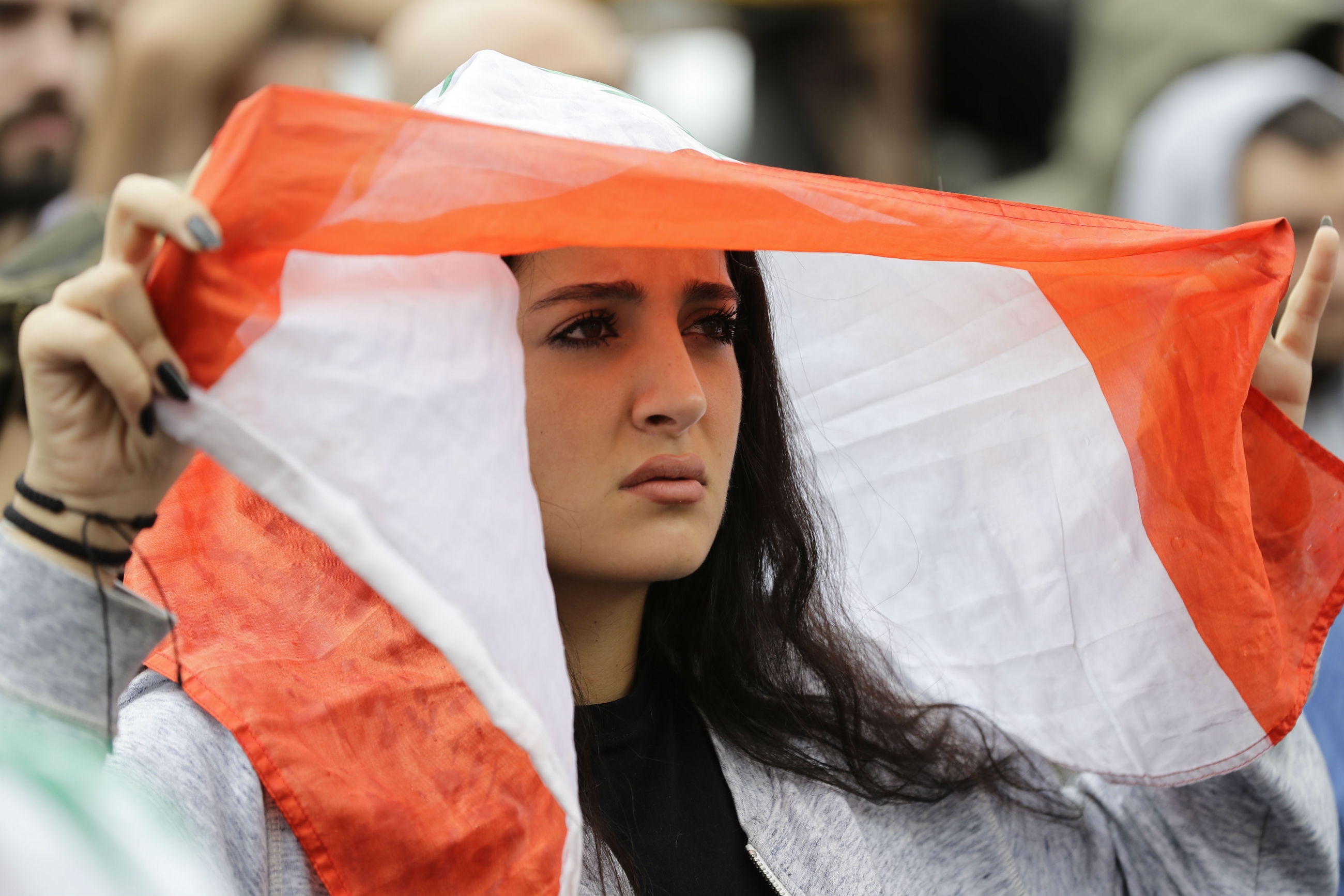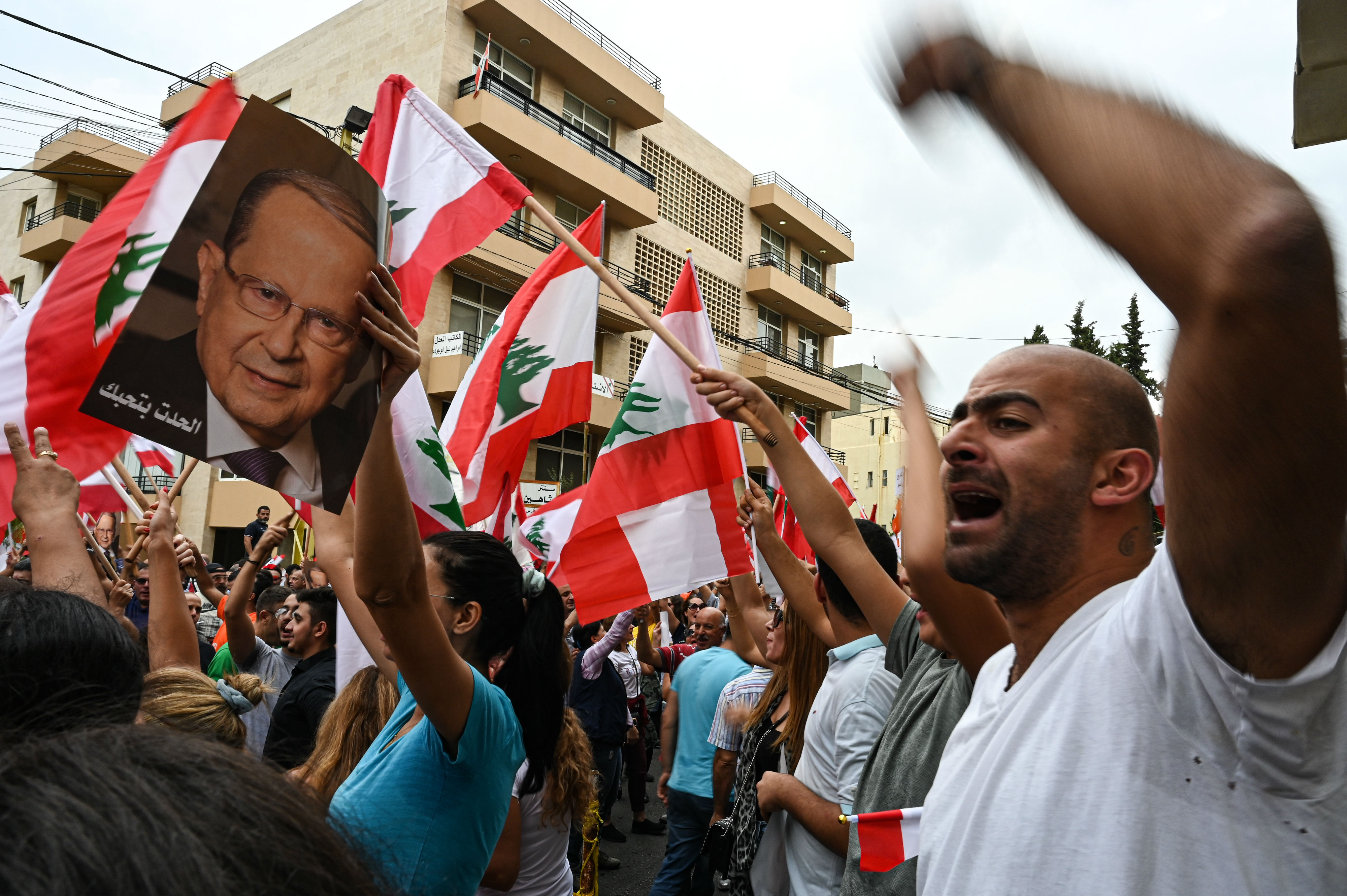'Complete rubbish': Lebanese president's plea to protesters met with anger

After seven days of silence, Lebanese President Michel Aoun addressed the country on Thursday in an attempt to placate its rebellious population, but his promises to tackle corruption were received with scepticism by protesters.
"My call to demonstrators: I am ready to meet your representatives that carry your concerns to listen to your specific demands. You will hear from us about our fears over financial collapse," Aoun said.
Hundreds of thousands of Lebanese have been protesting across the country since last week, railing against corruption, an ineffectual political class and the economic crisis Lebanon’s politicians have created.
'I am ready to meet your representatives that carry your concerns to listen to your specific demands'
- Michel Aoun
Aoun, 84, expressed solidarity with the protesters’ demands, and said corruption had "eaten us to the bone." However, he was keen to stress that the government should not resign, as protesters have demanded.
"We will discuss what we can do together to achieve your objectives without causing collapse and chaos and open a constructive dialogue that can lead to a constructive result and define options that will lead to the best results," Aoun said.
New MEE newsletter: Jerusalem Dispatch
Sign up to get the latest insights and analysis on Israel-Palestine, alongside Turkey Unpacked and other MEE newsletters
Aoun has faced criticism for largely staying silent as Lebanon has been brought to a standstill by leaderless demonstrations that have ground swathes of the country to a halt.
His speech has been highly anticipated, particularly as Prime Minister Saad Hariri’s address on Monday promising reforms largely failed to satisfy the protesters.
Initially, the octogenarian president was thought to be addressing the country live, though his speech appeared instead to be edited, with the position of books behind him altering between cuts. The speech was pushed back 90 minutes from the time it was due to start.
'All of them means all of them'
In central Beirut’s Riad al-Solh square, chants of “killon yaane killon” ("all of them means all of them") erupted from the protestors as soon as Aoun’s speech ended.
It appeared that those calling for Lebanon’s leaders to resign were angered even more.
“The speech was complete rubbish. They don’t hear the people. The streets want something completely irrelevant to what they are talking about,” said Tahar Ali, a 23-year-old telecoms engineer.
“Screw them all. The system is wrong. They’re not above the constitution - if I do something wrong, I go to jail. Why shouldn’t they? I’m really upset, I’m really tired. I don’t have stamina anymore. It’s time for them to leave.”
Facing towards parliament as they listened to Aoun’s pledges to lift banking secrecy and remove officials’ immunity from prosecution, demonstrators grew increasingly angry.
“Revolution, revolution, revolution,” they cried outside Beirut’s grand Al-Amin Mosque.
“We shouldn’t have even listened to it. He may as well have not said anything if that was all he was going to say,” one protestor shouted.
It’s too little, too late for most protestors in the capital.
“We are not going to stop our protests until we get what we want. We’re not giving up,” said 18-year-old Janal Khari.
“We’re used to these speeches that never change anything. Nothing is going to change the protest unless we get what we want.”
Political support
However, near the presidential palace in Baabda, just outside Beirut, a crowd of a hundred or so protesters chanted their support for the president, turning a popular chant denigrating Foreign Minister Gebran Bassil into a refrain proclaiming, “We all love Michel Aoun”.
“The speech was really positive,” said Tony Tabanje, a 25-year-old civil engineer. “It gives us hope that he’ll start to end corruption.”
Tabanje said he understood why protestors had been on the streets. “The Lebanese people are hurting because of the economic situation, the security situation, everything," he said.
However, he disagreed with protesters' calls for the whole government, as well as Aoun, to resign.
“If we had a dictatorship, we could ask for the fall of the regime,” but, he argued, given that Lebanon is a “democracy” such calls were “illogical".
Middle East Eye delivers independent and unrivalled coverage and analysis of the Middle East, North Africa and beyond. To learn more about republishing this content and the associated fees, please fill out this form. More about MEE can be found here.






